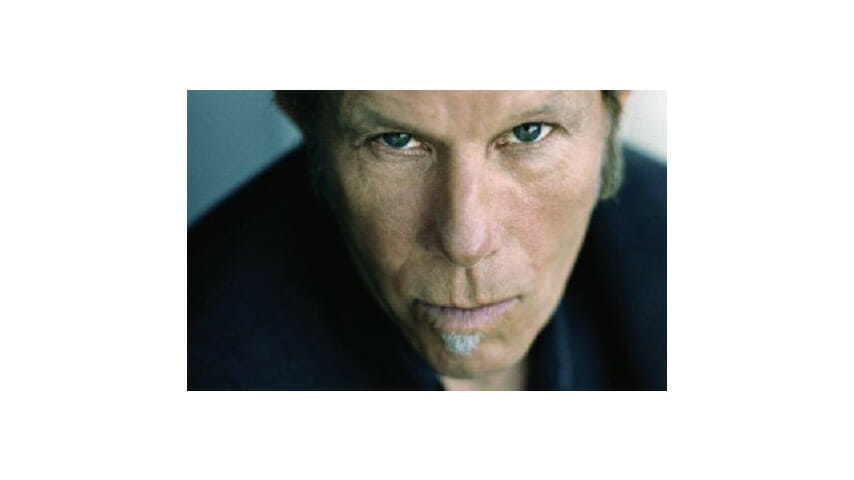Tom Waits – Orphans

When Johnny Cash released his three-CD box set in 2000, he grouped his favorite songs not by chronology but around the three main themes of his career: “Love,” “God” and “Murder.”
Tom Waits has done something similar on his new time-scrambled box set, Orphans, giving each CD a different subtitle: “Brawlers,” “Bawlers” and “Bastards.” Unlike Cash, however, Waits organizes his songs not by the themes in the lyrics but by the differences in sound. His subtitles represent his three main musical approaches: rocking, crooning and weirdness. Waits may be best known for his words, but in organizing these 56 selections (54 listed tracks and two bonus cuts) by sonic style, he forces us to consider the importance of his music.
Many folks assume Waits’ recordings succeed because the terrific songwriting overcomes the liability of his voice—a voice that sounds like there’s a cement mixer lodged in his throat. In fact, as Waits declares in his liner notes, his peculiar voice is his main instrument and best asset, and he has developed three ways of making the most of it. He can reinforce the pugnacious, grating qualities of his voice by shouting over a primal, thumping rhythm. Those are his bluesy, rocking songs, the “Brawlers.” Or he can counterbalance those same qualities by trying to croon in his unlikely, gravelly fashion over a strong melody and relaxed rhythm. Those are his ballads, waltzes and laments, the “Bawlers.” Or he can pull his voice out of pop-music conventions and use it as a poet, actor or monologist might over atmospheric music. Stranded between song and theater, those numbers are the “Bastards.”
Orphans is a peculiar kind of career overview, because not one of these tracks has ever appeared on an official Tom Waits album in the U.S. Twenty-four are from various soundtracks, tribute albums, overseas EPs and multiple-artist compilations, and 32 have never been released anywhere before—some because they’re newly recorded; some because they were written for other singers, and others because they were put aside for a rainy day. Waits wrote or co-wrote just 34 of the songs; the balance includes a Frank Sinatra number, a 1656 British ballad, a 1959 swamp-pop hit, songs by Skip Spence and Daniel Johnston, two songs apiece from Leadbelly and The Ramones, plus the Seven Dwarves’ marching song. And yet the box set manages to summarize his career, because every sonic approach he has ever used is represented here.
You won’t find “Innocent When You Dream”—one of Waits’ greatest songs—on Orphans, but you will find “Shiny Things,” which boasts a similar ramshackle grandeur. This is a “Bawler,” the sound of an exhausted man who hasn’t had a home-cooked meal or a good night’s sleep in a year, who nonetheless tries to bend his ravaged, sandpaper throat to romantic crooning. Over nothing but a piano and a banjo—almost in tune with one another—he sings of crows that fill their nests with shiny dimes and silver twine. Sitting in his own nest of racetrack tickets and glittering bourbon bottles, he recalls the less-than-shiny things he left behind, and his voice fills up with unbearable regret.
-

-

-

-

-

-

-

-

-

-

-

-

-

-

-

-

-

-

-

-

-

-

-

-

-

-

-

-

-

-

-

-

-

-

-

-

-

-

-

-








































